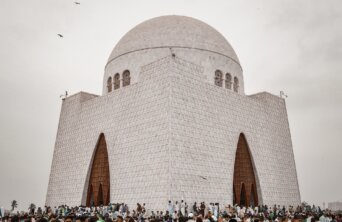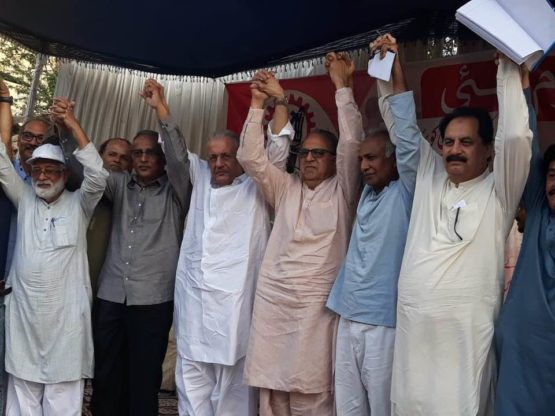- About
- Topics
- Picks
- Audio
- Story
- In-Depth
- Opinion
- News
- Donate
- Signup for our newsletterOur Editors' Best Picks.Send
Read, Debate: Engage.
| topic: | Election |
|---|---|
| located: | Pakistan |
| editor: | Shadi Khan Saif |
The Election Commission of Pakistan (ECP) has called off the provincial elections scheduled for April in two of the four provinces of Pakistan. Amid a heated political climate and economic turmoil, these apparently innocent looking moves undermine the respect for the Pakistani constitution and the soundness of the country’s democracy.
Last year, the former Prime Minister, Imran Khan, was ousted from the government following a vote of no-confidence. Nevertheless his party, the PTI, remained in power in these provinces until it later dissolved the assemblies - a move that therefore legally required new elections within 90 days, by 30 April. Under pressure by the military establishment which is seen as anti-Khan, reports Pakistan’s Dawn news, the ECP has delayed the polls for several months.
The ECP is bound by the constitution to ensure that elections are carried out legally and within the appropriate timeline, regardless of a lack of resources or political climates. It cited Pakistan’s financial troubles and the recent protests as reasons for delaying the elections.
Such manipulative practices of delaying polls and generating other hurdles are signs of corruption: if a government elected by the public for a certain period to serve them has failed to ensure their welfare and the peaceful transition of power through integral elections, it has failed to protect democracy.
The integrity of constitutional government rests on taxpayers’ right to choose their representatives from among their fellow citizens to manage the administrative affairs of the country for a set period of time; no individual or party has ownership of the country, nor the authority to overstep the laws.
This impasse can be overcome through the actions of the judicial branch of the country, which will have to override the ECP’s decision and protect the people’s right to vote instead of strong arming democracy.
The mushrooming of extremist parties is directly linked to the lack of representation at the local level, where the majority of the population in third-world countries like Pakistan most closely come in contact with elected officials. Without local representation, their voices are not heard when they demand for basic necessities of life, such as electricity and water.
Image by Hassan Anwer

